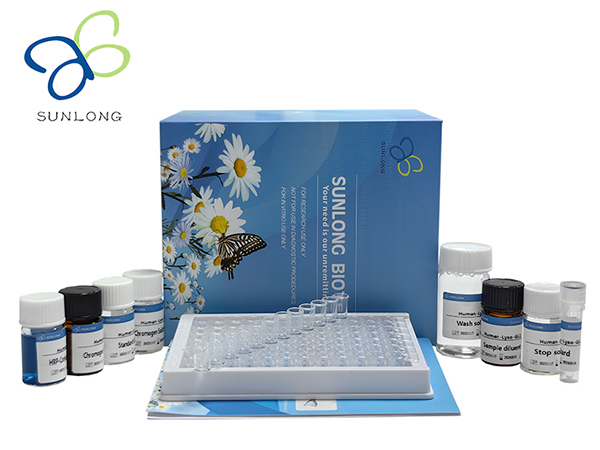Specifications:
| Application | ELISA-Based Assays |
| Storage Temperature | 2-8°C |
| Product Type | Elisa Kit |
| Product Grade | Molecular Biology |
The Human Creatine Kinase (CK) ELISA Kit is a sensitive and reliable assay designed for the quantitative detection of CK levels in human serum, plasma, culture media, and other biological fluids. This kit is ideal for research related to muscle activity, cardiac function, and various metabolic conditions.
Sample Preparation
1. Serum Preparation
- Collect whole blood and allow it to clot at room temperature for 10–20 minutes.
- Centrifuge at 2,000–3,000 rpm for 20 minutes to separate the serum.
- Re-centrifuge if any precipitates form during storage.
2. Plasma Preparation
- Collect whole blood into tubes containing anticoagulants (e.g., EDTA or citrate).
- Incubate at room temperature for 10–20 minutes.
- Centrifuge at 2,000–3,000 rpm for 20 minutes to obtain plasma.
- Re-centrifuge if necessary.
3. Urine Samples
- Collect urine in aseptic tubes.
- Centrifuge at 2,000–3,000 rpm for 20 minutes and carefully collect the supernatant.
- Re-centrifuge if precipitates form during storage.
4. Cell Samples
- For cell secretions, collect culture supernatants in aseptic tubes and centrifuge at 2,000–3,000 rpm for 20 minutes.
- For intracellular components:
- Dilute cells in PBS (pH 7.2–7.4) at 1×10⁷/mL.
- Disrupt cells via repeated freeze-thaw cycles.
- Centrifuge at 2,000–3,000 rpm for 20 minutes and collect the supernatant.
5. Tissue Samples
- Cut and weigh tissue samples, then freeze in liquid nitrogen and store at -80°C.
- Homogenize samples in PBS (pH 7.4) at 4°C.
- Centrifuge at 2,000–3,000 rpm for 20 minutes and collect the supernatant.
Important Notes
- Perform ELISA assays as soon as possible after sample collection.
- Store samples at -20°C if immediate testing is not feasible.
- Avoid repeated freeze-thaw cycles to preserve sample integrity.
- Do not use samples containing sodium azide (NaN₃) as it inhibits HRP activity.
Applications
- Cardiac Research:
- Monitor CK levels as a biomarker for myocardial infarction and heart-related disorders.
- Muscle Activity Studies:
- Assess CK as an indicator of muscle injury or exercise-induced stress.
- Metabolic Research:
- Explore CK's role in energy metabolism and related conditions.
- Neurological Disorders:
- Investigate CK in neurodegenerative diseases and metabolic myopathies.
- Clinical Diagnostics:
- Aid in the diagnosis of muscular dystrophy, rhabdomyolysis, and other conditions.
Advantages
- High Sensitivity and Specificity:
- Detects low levels of CK with minimal cross-reactivity or interference.
- Wide Sample Compatibility:
- Validated for serum, plasma, urine, cell culture supernatants, and tissue homogenates.
- Ease of Use:
- Includes pre-coated plates and ready-to-use reagents.
- Reproducibility:
- Provides consistent and reliable results across multiple experiments.
Storage and Stability
- Store all kit components at 2–8°C.
- Avoid repeated freeze-thaw cycles to maintain reagent integrity.
The Human Creatine Kinase (CK) ELISA Kit is an essential tool for researchers studying CK as a biomarker for muscle and cardiac health. Its precision, user-friendly design, and broad compatibility make it ideal for various clinical and experimental applications.




 0
0
